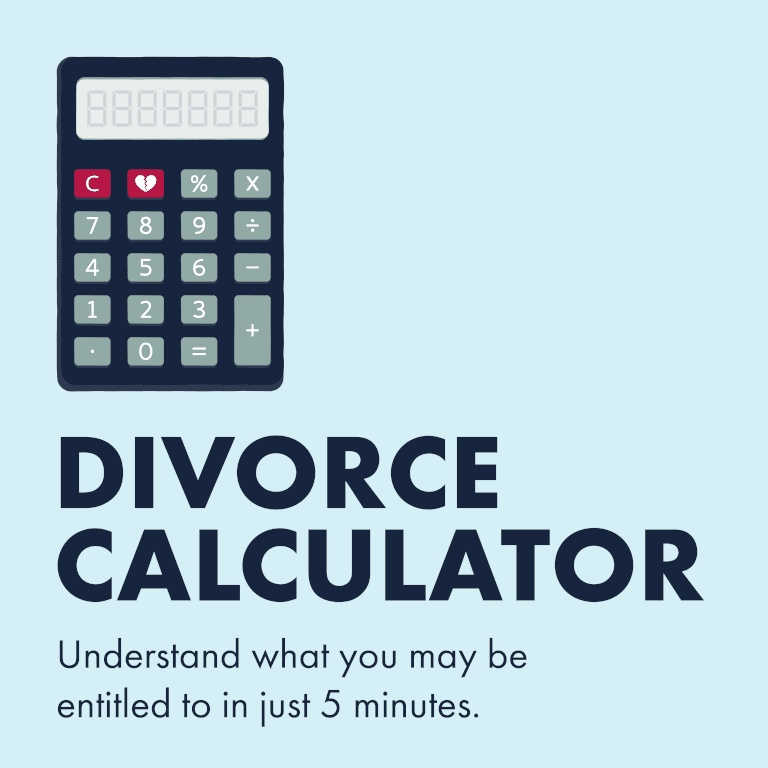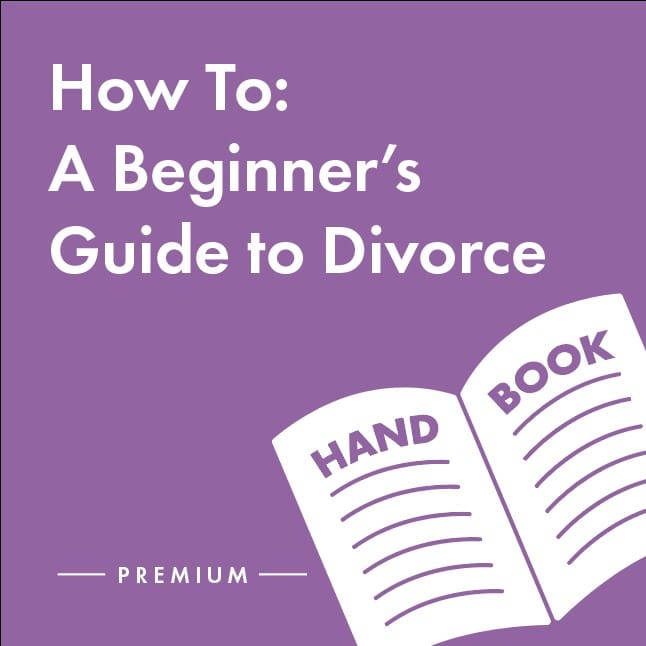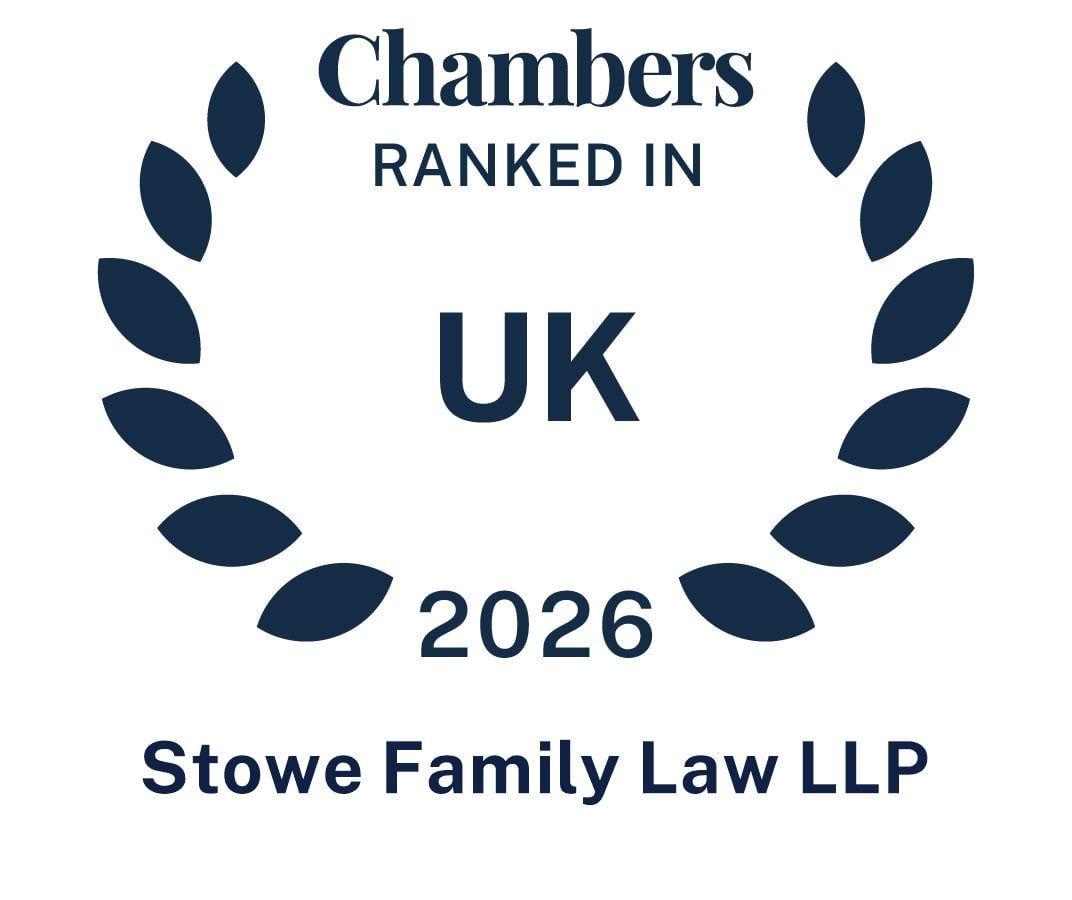Your local divorce solicitors
Divorce is never simple, but it is a lot easier with a reliable team by your side. That’s Stowe Family Law.
Here, we strive to make family law more straightforward to comprehend and recognise that each case is unique, requiring tailored support and careful handling.
We guide our clients through the divorce procedure with compassion and care, assuring them that they have the right group of professionals on their side.
We take up the conversations that our clients are unable to have and provide them with the information they need to confidently make any difficult decisions along the way.
With our assistance, clients successfully navigate the divorce process and move forward in life with renewed strength.
Our divorce services
No fault divorce means you no longer have to place blame or wait for a period of time to file for divorce, if you are unsure where to start, speaking with a solicitor will help you understand the process and to make a decision on how you wish to proceed.
Your local divorce solicitors
At Stowe Family Law, we make family law more straightforward and know that each case is unique, needing tailored support. We guide our clients through the divorce procedure with compassion and care. They know they have the right group of professionals on their side. We provide family law services across the UK with locations including Cambridge, London, Birmingham, Newcastle, Manchester, Liverpool, Brighton, Bristol, Cardiff and Leeds. Browse all of our office locations to find support near you.
The divorce process
Application
20-week reflection period
Conditional order
6-week waiting period
Final order
Average 9-12 months
If more than 12 months have elapsed between obtaining your conditional order and applying for your final order, you will have to submit a short statement to support your application, explaining the delay.
 Use the calculator
Use the calculator
Highly experienced divorce lawyers
Our experienced lawyers can help with all divorce matters, including applying for a divorce, reaching a financial settlement, be it the divisions of assets, what happens to the family home, pensions or maintenance payments.
read moreOur specialist child law team helps parents to resolve their issues and clarify arrangements for their children.
At times, reaching an agreement can be difficult, but with our professional legal support from the beginning and holistic approach, over 80% of our cases settle out of court.
What our clients say
We offer an award-winning service
 Download the guide
Download the guide
What is divorce law?
Divorce law is a broad area of legal practice that focuses on issues involving the dissolution of marriage through a legal process by filing an application in a court of law.
read moreOnce a couple has divorced, they are no longer legally married; however, there may be legal contracts set in place such as maintenance orders and child arrangements orders that they must still adhere to.
Common questions about divorce
Divorce FAQs
Divorce FAQs
-
What is divorce?
A divorce is the dissolution of marriage through a legal process by filing an application in a court of law. Once a couple has divorced, they are no longer legally married; however, there may be legal contracts set in place such as maintenance orders and child arrangements orders that they must still adhere to.
-
Can I get divorced?
To be eligible for divorce or to end a civil partnership, you need to have been married or in the civil partnership for 12 months or more.
If this is not the case, you can apply to annul the marriage or complete a (judicial) separation application.
-
My marriage is in trouble, but I don’t want to get divorced, can we just separate?
If you separate but do not get divorced, you will remain legally tied to your spouse. This means both that you will still be husband and wife and you will remain financially tied. The financial claims that arise upon divorce also remain open and can be addressed at a later date.
It is possible to go through a legal process called judicial separation, whereby you remain married but legally separated, which can also deal with most but not all financial claims. In practice, this is rarely used.
-
I think I want to get divorced, but what does this mean?
Getting divorced legally brings your marriage to an end.
It is essential to understand that the divorce in itself does not end the financial obligations that arise within marriage, and this requires a separate order that sits alongside the divorce.
-
I am in a same-sex marriage or civil partnership; does this make a difference in how my separation is dealt with?
The process for ending a same-sex marriage or civil partnership is the same as for heterosexual marriages.
-
There is violence in my relationship; what can I do?
At any time that you feel under threat or in danger, then the first step is to dial 999.
However, protection can also be obtained from the family court, including orders which regulate the occupation for the family home (and exclude the violent party), and orders that prohibit certain behaviour.
-
How do you get divorced?
There are four key stages in the divorce process.
These are as follows:
- Complete a divorce application as either a sole applicate or as a couple, as joint applicants (Form DB)
- Submit the application to a divorce centre either online or by post with the correct court fee – currently £612
- Apply for a conditional order (once the application is acknowledged by your spouse and after a 20-week cooling-off period)
- Apply for a final order (6 weeks after you have the conditional order)
However, the act of divorce itself does not put an end to the financial relationship between you and your partner.
To separate your finances, you must reach a financial settlement; a legally binding decision on how assets and wealth will be split now that the marriage has ended.
Arrangements for children will need to be made if required, but these are also dealt with separately from the divorce.
-
What are the legal grounds I can state for my divorce?
If you are getting divorced in either England or Wales, you actually don’t need to provide grounds for your marriage breakdown. Both countries operate a no-fault based divorce system – so all you need to do is state that your marriage has broken down.
-
What exactly is a divorce application?
A divorce application (also referred to as a D8 form) is the start of your divorce process. There are a couple of ways to do this: either as a sole applicant or alongside your ex-partner as joint applicants. The cost of this is £612 for the court fee – if applying as joint-applicants, Applicant 1 will pay the court fee.
If you’ve been served a divorce application, it means your ex-spouse has begun divorce proceedings and you’re the ‘Respondent’.
Here at Stowe Family Law, we’ve helped clients on both sides of the divorce process. So, no matter what your circumstances are, we’re here to help.
-
What if my spouse refuses to accept the divorce?
It is very difficult to stop divorce proceedings from continuing.
It is possible to dispute proceedings, but the reasons for doing so are limited and generally have to do with the validity of the marriage and whether it was celebrated according to the correct procedure.
-
What happens if my spouse refuses to acknowledge the divorce application?
Someone refusing to acknowledge a divorce application can be extremely frustrating. However, there are several options open to you if your spouse does not respond.
Once the divorce application has been filed, the court sends out a copy of the application and an Acknowledgment of Service form to the respondent (your ex-spouse).
They are given 14 days to complete this and return to the court. This confirms to the court that the respondent has received the application.
If there is no cooperation from them, you can have the application personally served.
A court bailiff can arrange this (if you do not have legal representation) or a Process Server (if you have a solicitor acting for you). They will physically serve the documents to your spouse at their address or an alternative address, like their work address.
Once personally served, you can proceed whether they cooperate or not.
-
What is a conditional order?
The conditional order is a certificate that says the court doesn’t see any reason you can’t divorce or separate. It is often referred to as the “first stage” in the divorce process.
However, the conditional order does not bring the marriage to an end. At this stage, the couple remains married in the eyes of the law and can still move back from finalising the divorce at this stage.
-
What is a final order?
Six weeks after the granting of a conditional order, you can apply for a final order.
This is the last stage of divorce and legally ends your marriage or civil partnership.
You should keep your final order as you may require it if you remarry or change back to your maiden name.
There are significant implications of the final order, and it is best to finalise any financial settlements before applying for a final order.
If you do not apply for a final order within 12 months of getting the conditional order, you will have to explain the delay to the court.
-
How long does it take to get divorced?
Typically, a divorce takes between 6-8 months, but this can be longer depending on the complexities of your case. This can include complicated financial settlements, agreeing on child arrangement orders, and cooperation from both parties.
There are also two main waiting periods. The first of which is a 20-week cooling-off period once the court has issued the application. This has to happen before the conditional order is able to be granted. The second happens after this – a six-week waiting period until you apply to the court for a final order.
-
What does it cost to get divorced?
There is no exact price for a divorce, as the cost is dependent on how you choose to get divorced, plus the complexities of your individual circumstances.
There is the standard court fee of £612 for your divorce application, as well as the solicitor’s fees. Here at Stowe Family Law, we do offer fixed-fee divorces if you are concerned about the price.
-
When getting a divorce, how can I make the divorce process cost as little as possible?
Unless you are entitled to a fee exemption, you will have to pay the court fee of £612.
It is, however, possible to file the divorce yourself via the online divorce process, which will then avoid incurring the divorce solicitor’s costs set out above.
-
Who pays the legal fees in divorce?
The general rule on who pays the legal fees in a divorce is that each person getting divorced will pay their legal costs.
The cost of a divorce includes the court fee (currently £612) and the costs of the solicitors who assist the parties with the divorce process if they are instructed.
The person applying for the divorce (the applicant) will be responsible for covering the court fee. If the application is a joint one, applicant 1 will pay the court fee.
The applicant or joint applicant can ask the court to make an order that the other party pays their legal costs relating to the divorce or request that the costs are divided equally, or just the court fee is shared.
However, it is necessary to make a separate application to the court to ask for a costs order, and for this reason, they are rarely sought.
It is important to note that costs relating to the divorce are different from those incurred in negotiating a financial settlement and/or child arrangements.
-
Do I need a solicitor?
If you file the divorce application yourself via the online process, you may not need a solicitor for the divorce.
However, It is strongly advised to take legal advice on any financial settlement.
-
Can I use the same solicitor as my spouse?
No, you cannot use the same divorce solicitor as your spouse as this would give rise to a conflict of interest.
It is advisable for you both to take independent legal advice from your own divorce solicitors.
-
Will getting divorce law specialists involved in a divorce make things more hostile?
Not at all.
We would recommend both parties instruct divorce solicitors who are members of Resolution, a body of family lawyers committed to resolving matters without conflict.
-
Will I have to go to court?
It depends. It is unlikely that you would need to go to court for the divorce proceedings themselves.
If you reach a financial settlement by agreement, that will usually be dealt with on paper, without court attendance.
If you cannot reach an agreement despite trying tools such as mediation or arbitration, it is maybe necessary to deal with this via the court process, which will usually involve attending court for hearings.
-
Can I change mine and my children's names after divorce?
You can change your name, but not your children’s names unless their other parent consents.
By law, you can simply adopt a new name and start using it. However, you will need a deed poll or other types of formal documents to update your passport, driving licence, bank accounts and other official records.
-
What if my spouse lacks mental capacity?
The primary consideration is whether the party with mental health concerns has the capacity to provide instructions and to agree to a divorce or financial settlement.
Under English law, a person’s mental capacity is judged according to the decision that needs to be made. For example, can they understand the relevant information relating to a financial settlement to make an informed decision?
If there are doubts over someone’s capacity, a doctor must make an assessment to determine whether they can make the specific decisions they face.
If they decide they do not, it is possible to progress the case if a representative, a ‘litigation friend’, is appointed to act on their behalf and make decisions in their best interests.
-
Are there any alternatives to divorce?
Many people going through a separation don’t necessarily feel ready to dive straight into divorce proceedings.
In this case, there are several options available, including judicial separation, annulment and a separation agreement.
-
What is a collaborative divorce?
A collaborative divorce involves both parties having their separate divorce lawyers that work together to achieve a settlement that suits the whole family, avoiding going to court.
The process enables a couple to discuss, in a safe environment, their hopes and concerns.
It allows them to retain control over the decision-making process, rather than a judge, who may only meet them for the first time at a final hearing, deciding the settlement.
It reduces the risk of conflict, misunderstandings and the expense and stress of court proceedings.
It is also a particularly good option if you have children and can help you both develop a constructive and cooperative relationship moving forward.
-
What is mediation?
Mediation is often a more dignified and conciliatory way of sorting out issues arising out of separation or divorce. When successful, it is a cheaper and quicker process compared to litigation/court-based applications.
Mediation may limit the stress and anxiety that you and your ex-partner experience during the relationship break up, and is often a good option where you have children to enable you to continue to communicate constructively.
Mediation is a voluntary and confidential process whereby you jointly meet with a qualified mediator, whose role is to assist the two of you to reach an agreement, rather than to advice either one of you.
This approach helps couples that are separating to have an open and honest dialogue to reach agreements that can then be converted into legally binding agreements with the help of their divorce lawyers. It is usually important to each have independent legal advice alongside the mediation process.
-
What is arbitration?
Arbitration is a form of dispute resolution and involves a third party (the arbitrator) adopting the role of Judge. The arbitrator will decide on the issues they are appointed to deal with after reviewing and hearing evidence from both parties in the same way that a Judge would at a final hearing.
When conducting an arbitration, arbitrators are required to apply the law of England and Wales. The arbitrator’s final decision is binding on both parties and is known as an Award (financial matters) or a Determination (children matters). The decision can then be embodied into a Court Order and submitted to Court for approval by a Judge.
There are several benefits of arbitration over the court system, including less time, more cost-effective, greater control of the case and confidentiality. However, both parties have to agree to engage in the process, and there are additional costs involved in paying the arbitrator to hear your case.
-
How will our family assets be split?
It depends. The court has to take into account a number of factors when deciding how to split assets.
The starting point is equality, but there can be a departure from that, in order to meet needs or to reflect other factors, such as assets brought to the marriage by one party.
This is a discretionary area of law, and outcomes will vary depending on the circumstances of the parties.
Meet our divorce solicitors
Latest advice
Newsletter Sign Up
Sign up for advice on divorce and relationships from our lawyers, divorce coaches and relationship experts.
Privacy Policy



























